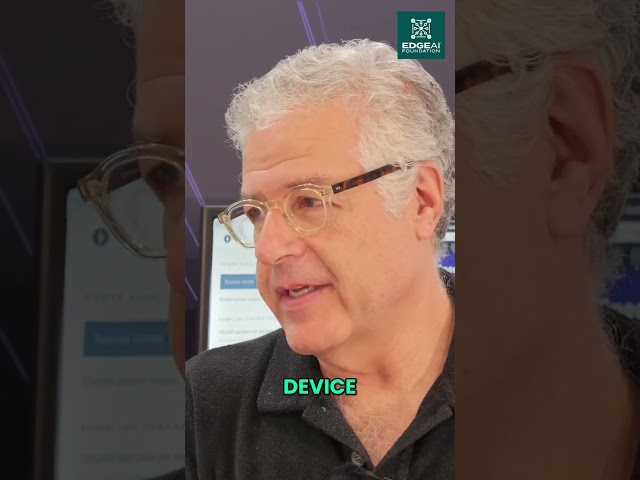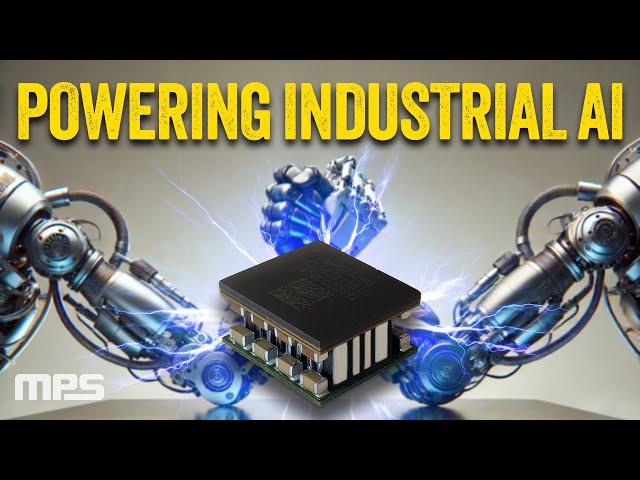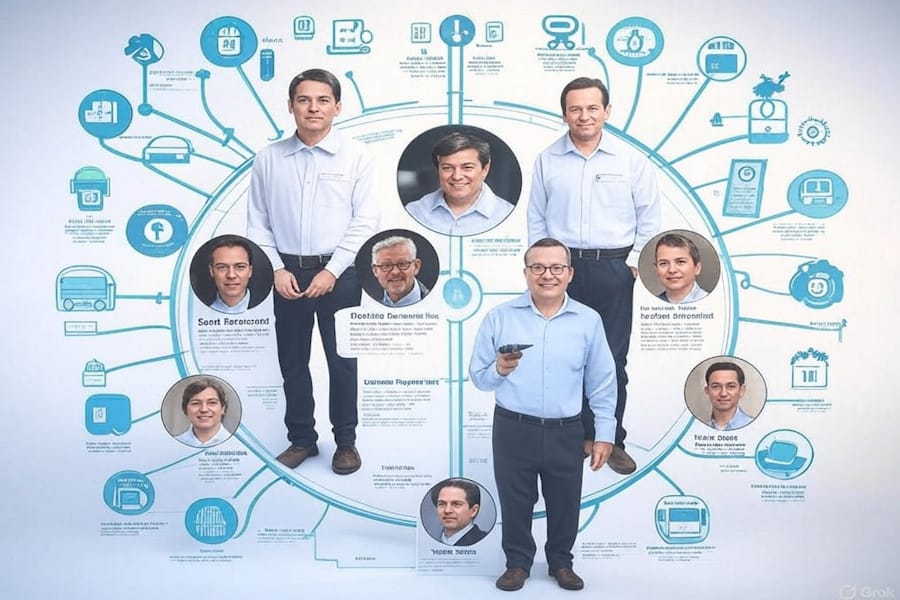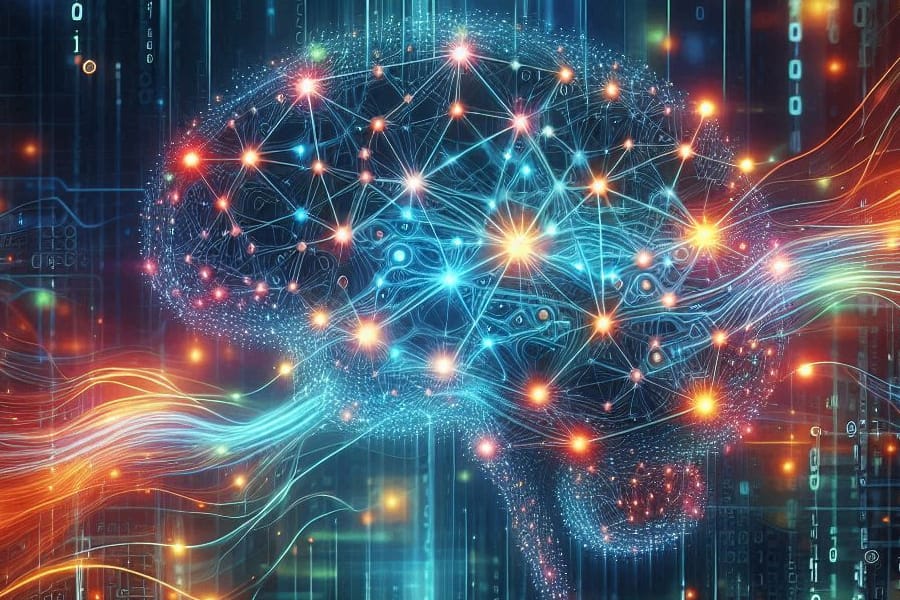Type: Article -> Category: AI What Is
What is Edge AI?
A Deep Dive into the Future of Smart Technology

Publish Date: Last Updated: 13th January 2026
Author: nick smith- With the help of GROK3
Introduction: The Rise of Edge AI
In a world where speed, privacy, and efficiency are paramount, Edge AI is emerging as a game-changer. But what exactly is Edge AI? Simply put, it’s the deployment of artificial intelligence (AI) directly on devices at the "edge" of a network, think smartphones, IoT devices, or even autonomous vehicles, rather than relying on centralized cloud servers. As of March 29, 2025, Edge AI is trending as businesses and consumers demand faster, more secure, and energy-efficient solutions. This article explores what Edge AI is, how it works, its benefits, use cases, and why it’s shaping the future of technology.
The Foundation: Understanding Edge AI
Edge AI combines two powerful concepts: edge computing and artificial intelligence. Edge computing processes data locally on a device or nearby hardware, minimizing the need to send information to distant cloud servers. AI, meanwhile, enables machines to analyze data, make decisions, and learn from patterns. Together, Edge AI empowers devices to perform intelligent tasks in real time, without constant internet reliance.
Unlike traditional cloud-based AI, where data travels to a central server for processing (introducing latency and bandwidth demands), Edge AI keeps computation close to the source. This shift is critical in an era where billions of devices, from smart thermostats to industrial sensors, are generating massive data volumes daily.
How Does Edge AI Work?
Edge AI operates through a synergy of hardware and software:
- Hardware: Devices like microchips (e.g., NVIDIA Jetson, Google Coral) or IoT sensors equipped with AI-capable processors.
- Software: Lightweight AI models, often optimized versions of machine learning algorithms, run directly on these devices.
- Data Processing: Data is collected, analyzed, and acted upon locally, with only essential insights (if any) sent to the cloud.
For example, a security camera with Edge AI can detect motion, recognize faces, and alert homeowners, all without uploading footage to a server. This localized approach reduces latency, cuts bandwidth costs, and enhances privacy by keeping sensitive data on-device.
Why Edge AI Matters: Key Benefits
Edge AI isn’t just a buzzword, it’s a practical solution addressing real-world needs. Here’s why it’s gaining momentum:
- Speed: Real-time processing eliminates delays, critical for applications like autonomous driving or medical diagnostics.
- Privacy: By keeping data local, Edge AI reduces the risk of breaches, a growing concern in 2025 as regulations like the EU’s AI Act tighten.
- Efficiency: Less reliance on cloud servers lowers energy use and bandwidth, aligning with sustainability goals.
- Reliability: Devices can function offline, making Edge AI ideal for remote areas or unstable networks.
Use Cases: Where Edge AI Shines
Edge AI is already transforming industries. Here are some standout examples:
- Healthcare: Wearables like smartwatches analyze heart rates or detect falls instantly, alerting doctors without cloud delays.
- Retail: Smart shelves with Edge AI track inventory in real time, reducing waste and optimizing stock.
- Manufacturing: Industrial robots use Edge AI to monitor equipment health, predicting failures before they occur.
- Automotive: Self-driving cars process road data on the fly, ensuring split-second decisions for safety.
- Smart Cities: Traffic cameras adjust signals based on real-time flow, easing congestion without server dependency.
The Challenges of Edge AI
While promising, Edge AI isn’t without hurdles:
- Hardware Limits: Edge devices often have less computing power than cloud servers, requiring optimized AI models.
- Cost: Equipping devices with AI-capable chips can raise manufacturing expenses.
- Updates: Managing software updates across millions of distributed devices is complex.
Despite these challenges, advancements in chip design (e.g., Arm’s Ethos processors) and model compression techniques are making Edge AI more feasible every day.
The Future of Edge AI
Looking ahead, Edge AI is poised to dominate as 5G networks expand and IoT adoption surges. Analysts predict that by 2030, over 75% of enterprise-generated data will be processed at the edge, up from less than 10% a decade ago. Innovations like Google Cloud’s edge computing partnerships and NVIDIA’s AI-on-edge platforms signal a robust ecosystem. In 2025 alone, we’ve seen Edge AI power smarter homes, greener factories, and safer roads, trends set to accelerate.
Edge AI on YoutTube

What Is Edge AI? Pete Bernard Explains in 60 Seconds
YouTube Channel: EDGE AI FOUNDATION

What Really Is Edge AI? Explained by Edge AI Foundation
YouTube Channel: ipXchange

Practical Edge AI
YouTube Channel: The IoT Show

Edge AI Changes EVERYTHING for Power Design | MPS Explains
YouTube Channel: ipXchange
Conclusion: Edge AI as the Next Frontier
Edge AI is more than a tech trend, it’s a paradigm shift redefining how we interact with intelligent systems. By bringing AI closer to where data is born, it unlocks speed, security, and scalability that cloud-only models can’t match. Whether you’re a business leader, developer, or curious consumer, understanding Edge AI is key to navigating the future. As devices get smarter and networks evolve, Edge AI stands tall as the backbone of tomorrow’s technology.
Latest AI What Is Articles
AI Questions and Answers section for What is Edge AI?
Welcome to a new feature where you can interact with our AI called Jeannie. You can ask her anything relating to this article. If this feature is available, you should see a small genie lamp above this text. Click on the lamp to start a chat or view the following questions that Jeannie has answered relating to What is Edge AI?.
Be the first to ask our Jeannie AI a question about this article
Look for the gold latern at the bottom right of your screen and click on it to enable Jeannie AI Chat.
Type: Article -> Category: AI What Is










